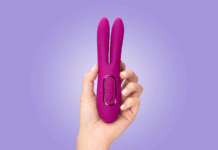Did you know that being a fashion designer isn’t your only option for having a career in the fashion industry? Many people associate the fashion industry with being a fashion designer, but there are numerous other fashion careers they probably don’t know about.
If you want to work in the fashion industry, you should know your possibilities. To help you out we gathered a list of surprising fashion careers you didn’t know existed.
Product developer
The job of a fashion product developer is to manage the entire product development process. This means they are responsible for everything from planning, and development to presenting the final product.
Product developers are also in charge of making sure that products are produced efficiently and within certain deadlines.
Daily, product developers collaborate closely with the design team. You will work on design concepts, prototypes, manufacturing techniques, construction, sourcing of materials and so much more. Having excellent communication and organization skills can help you in this job.
Wholesale manager
You’ve probably heard of wholesale by now. It’s a popular subdivision in the fashion industry. And as a wholesale manager, you’ll play a vital role in this subdivision.
Wholesale refers to distributing goods in bulk to retailers, who then repackage and resell them in smaller quantities at higher prices.
For instance, Net-a-Porter is a seller of luxury clothing. They get wholesale blazer dresses of a certain brand and sell them in their online store.
As a wholesale manager, your responsibilities involve negotiation with suppliers, monitoring distribution processes, and developing sales strategies.
If you want to be a wholesale manager, you need to work on your leadership, negotiation, and communication skills.
Fashion merchandiser
A fashion merchandiser is a person who decides what a fashion collection will consist of. Their job is to decide which pieces should be a part of the collection – two pairs of pants, four blouses, two dresses, and one jacket or something similar.
Your role as a fashion merchandiser is to keep up with fashion trends and competition so that you don’t miss out on important categories. In addition to that, you also need to review and analyze past sales to know what sold well and what didn’t.
If you decide to try your hand at this job, you’ll be involved with garments from their initial concept to the final product.
Fashion graphic designer
This position requires you to spend a lot of time on your computer. To put it simply, this job is a mix of fashion and graphic design. This means that you need to be skilled with programs such as Photoshop, Illustrator, and others.
So, if you have a degree in graphic design, becoming a fashion graphic designer won’t be a problem for you. As long as you enjoy fashion.
Your job will be to sketch fashion flats, create prints, and so much more.
Fashion modelist
A modelist shapes the basic structure of the sewing phase based on the model designed by the stylist. Basically, their job is to create a prototype of a product.
The modelists job is to create a 3D version of a drawing. To be able to do that, they need to interpret the shape and proportion of a garment through the silhouette drawn by the designer.
To be able to do this properly they work closely with different product developers, fashion merchandisers, workshops, and others involved with product development.
Sourcing Specialist
To be able to produce garments, you need to work with vendors who have the right supplies and capabilities. For example, you need to work with someone who can get you quality fabrics and someone who has the right tools to create garments from those fabrics.
That’s where the sourcing specialist comes in. The main job of a sourcing specialist is to find new vendors who have cutting-edge machinery and tools, or who utilize new construction methods.
Unlike what you may believe, not all fashion factories can count on the right machinery. For instance, the fashion factory you work in may not have the tools or machinery to stitch denim. That’s where you as a sourcing specialist come in – you need to find the factory that has those machines.
If you’re skilled in building relationships and connecting with new people, this is a perfect job for you. You’ll be negotiating prices, managing relationships, negotiating terms and timelines, among other things.
Conclusion
And those were the 6 fashion careers you probably didn’t know existed. Now that you know what they are and what skills you need to have, which one of these jobs would you choose?





